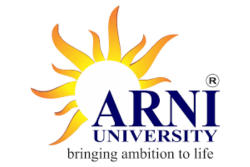Work Integrated Learning Program (WILP) is the educational framework that combine academic learning with practical work experience. These programs allow students to gain hands-on experience in their field of study while still pursuing their degrees. WILP can take various forms, including internships, co-op programs, apprenticeships, and project-based learning, all aimed at enhancing the employability of students.
Structure of WILP
Typically, WILP programs involve a partnership between educational institutions and industry organizations. Students engage in work placements or internships that are directly related to their academic curriculum. The structure may vary, but it generally includes:
-
1
Coursework:
Students complete academic courses that complement their work experience.
-
2
Work Experience:
Students participate in internships or co-op placements, gaining practical skills and insights into their chosen field.
-
3
Mentorship:
Many WILP programs include mentorship opportunities, where students receive guidance from experienced professionals.

Benefits of Wilp
The need for WILP arises from the evolving demands of the job market. Employers increasingly seek candidates who possess not only academic qualifications but also practical experience and skills. WILP addresses this gap by providing students with opportunities to gain relevant experience while they study. Additionally, as industries become more competitive and technology-driven, the integration of work experience into education ensures that graduates are well-prepared to meet the challenges of the workforce.
-
1
Enhanced Employability:
WILP equips students with real-world skills and experience, making them more attractive to potential employers.
-
2
Informed Career Choices:
Through WILP, students can explore different career paths and industries, helping them make informed decisions about their future.
-
3
Practical Application of Knowledge:
Students can apply theoretical concepts learned in the classroom to real-world situations, reinforcing their understanding and retention of the material.
-
4
Networking Opportunities:
Engaging in WILP allows students to build professional networks, which can be beneficial for future job placements and career advancement.
-
5
Skill Development:
Students develop essential soft skills such as communication, teamwork, and problem-solving, which are highly valued in the workplace.
WILP represents a progressive approach to education that benefits both students and employers. By integrating academic learning with practical work experience, WILP prepares students for successful careers while providing employers with a skilled and motivated workforce. As the job market continues to evolve, programs like WILP will play a crucial role in shaping the future of education and employment.

